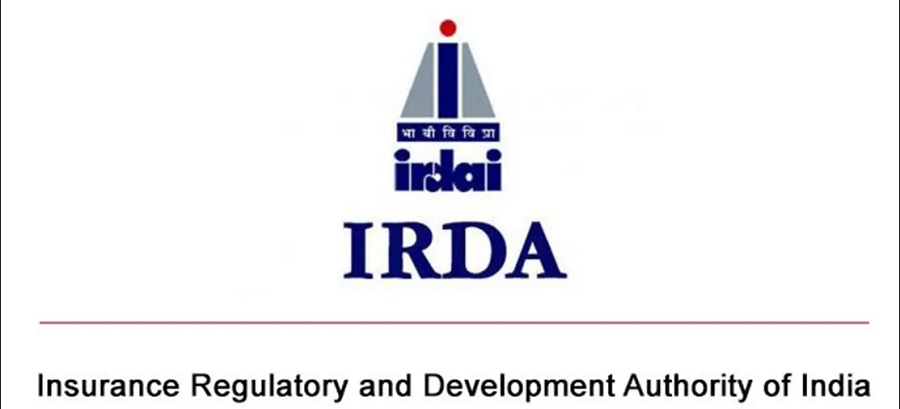The term “IRDA“ refers to the Insurance Regulatory and Development Authority, which functions as the regulator of India’s insurance industry. IRDA’s responsibilities include overseeing the operations of Life Insurance and General Insurance companies in the country, to safeguard the interests of policyholders and regulate the insurance sector. The IRDA’s primary objective is to regulate the industry and ensure the protection of policyholders. To understand more about the role and functions of the IRDA in the Indian insurance sector, continue reading to discover more about this apex body of insurance providers in India.
Buy Prime Test Series for all Banking, SSC, Insurance & other exams
IRDA-Brief Introduction of the Insurance Regulatory and Development Authority
The oversight of the insurance industry in India is the responsibility of the Insurance Regulatory and Development Authority (IRDA), which acts as a regulatory body. IRDA’s primary role is to develop and enforce rules and regulations for insurance companies, protect policyholders, and foster growth in the industry. The IRDA regularly issues advisories to insurers in response to changes in regulations and works to promote efficiency in the insurance business while controlling rates and charges. This article explores the functions, features, and benefits of the IRDA.
IRDA- Establishment
Until 2000, the insurance industry in India was regulated by the Government. However, the Malhotra Committee report of 1999 recommended the creation of a separate regulatory body for the industry. Hence, the Insurance Regulatory and Development Authority (IRDA) was established in 2000, and it began accepting applications from insurance companies for registration. The IRDA has set up regulations under Section 114A of the Insurance Act, of 1938, which cover the registration of insurance companies and safeguarding the interests of policyholders.
IRDA- Objectives
The Insurance Regulatory and Development Authority of India aims to enforce the provisions of the Insurance Act.
The IRDA has a mission statement with three objectives:
- Protecting the interest and fair treatment of policyholders
- Regulating the insurance industry fairly and ensuring its financial soundness
- Regularly framing regulations to remove any ambiguity in the industry’s operation.
Salient Role of IRDA in the Insurance Sector in India:
The Indian insurance industry dates back to the 1800s and has progressed with a focus on policyholder protection.
- The IRDA has a significant role in framing regulations that prioritize the interests of policyholders.
- The IRDA aims to facilitate the orderly growth of the insurance industry for the common good.
- The regulator seeks to provide long-term funding to accelerate the country’s economy.
- The IRDA is responsible for promoting and monitoring high standards of integrity, financial soundness, and competence in insurance providers.
- The regulator strives for prompt and efficient settlement of legitimate claims, while also preventing fraud and malpractices through a grievance redressal forum.
- The IRDA promotes transparency and fairness in the financial markets by ensuring the systematic conduct of insurance.
- The regulator ensures that insurers maintain high standards of financial stability by implementing a dependable management system.
- Adequate action is taken against insurers who fail to maintain high standards.
- The IRDA aims to achieve an optimum level of self-regulation in the insurance industry.
Functions of IRDA
- The IRDA has the power to grant, renew, modify, suspend, cancel, or withdraw registration certificates of insurance companies.
- IRDA is responsible for protecting the policyholder’s interests in various matters such as the grant of policies, settlement of claims, nomination by policyholders, insurable interest, surrender value of the policy, and other terms and conditions of the policy.
- The regulator specifies a code of conduct, qualifications, and training for insurance agents and intermediaries.
- The IRDA also specifies a code of conduct for loss assessors and surveyors.
- It levies fees for carrying out the provisions of the Act.
- The IRDA undertakes inspections, calls for information, and investigations including an audit of insurance companies, intermediaries, and other organizations associated with the insurance business.
- The regulator regulates and controls insurance rates, terms and conditions, and advantages that may be offered by the insurance providers.
In addition to the above core functions, the IRDA performs various other functions to ensure the policyholder’s interest is protected.
How Does IRDA Work?
The IRDA, which serves as the top regulatory body for the insurance industry, prioritizes the policyholder’s interests in its main activities. IRDA goal is to establish clear and unbiased regulations that promote the industry’s fairness and financial stability without favoring any particular insurance company.
- Grants registration certificates to newly-formed insurance companies.
- Establishes guidelines and regulations to protect the interests of policyholders.
- Ensures fair and prompt settlement of all claims by insurance companies.
- Regulates the code of conduct of insurance companies, intermediaries, and other entities associated with the insurance industry.
- Provides dispute resolution solutions through the IRDA ombudsman.
- Controls and regulates insurance rates to prevent excessive premium increases.
- Sets the minimum percentage limit of insurance companies for General and Life Insurance, thus promoting development in urban and rural sectors.
IRDA- Features & Benefits
- The IRDA is the regulatory authority for the insurance industry in India.
- IRDA ensures the protection of policyholders’ interests.
- The rules and regulations are framed by IRDA under Section 114A of the Insurance Act, of 1938.
- The Insurance Act empowers the IRDA to grant registration certificates to new insurance companies for operation in India.
- The IRDA oversees the activities of the insurance industry to ensure the sustained development of insurers and policyholders.
Types of Insurances Regulated by the IRDAI:
The Insurance Regulatory and Development Authority of India oversees and regulates various types of insurance policies in the country, which can be broadly classified into Life Insurance and General Insurance. The different types of insurance policies that fall under these categories are:
Life Insurance:
- Term Plans
- Endowment Policies
- Unit-linked Insurance Policies
- Retirement Policies
- Money-back Policies
General Insurance:
- Health Insurance Policies
- Vehicle/Motor Insurance Policies (including Car and Bike Insurance)
- Property Insurance Policies
- Travel Insurance Plans
- Gadget Insurance Plans
You may also read this:
Find More News Related to Banking




 States and Capitals - How Many States in...
States and Capitals - How Many States in...
 Which is the Newest District of Haryana?...
Which is the Newest District of Haryana?...
 Top-5 Coconut Producing Countries in the...
Top-5 Coconut Producing Countries in the...

